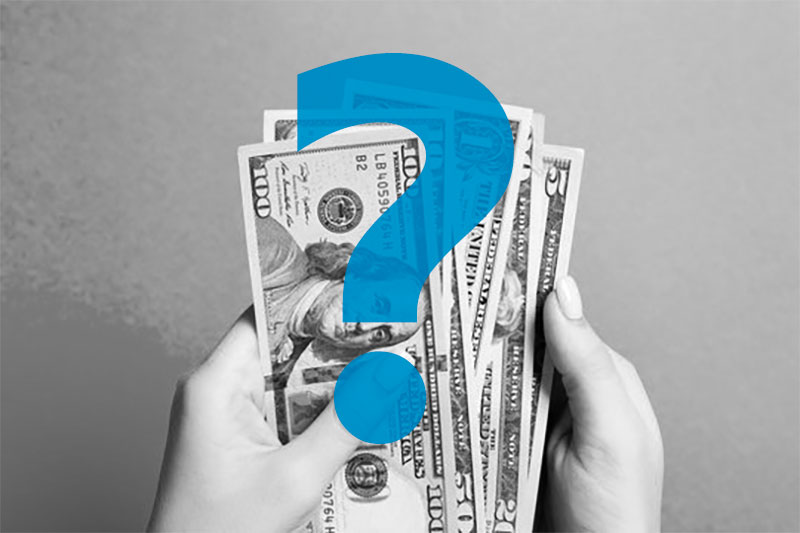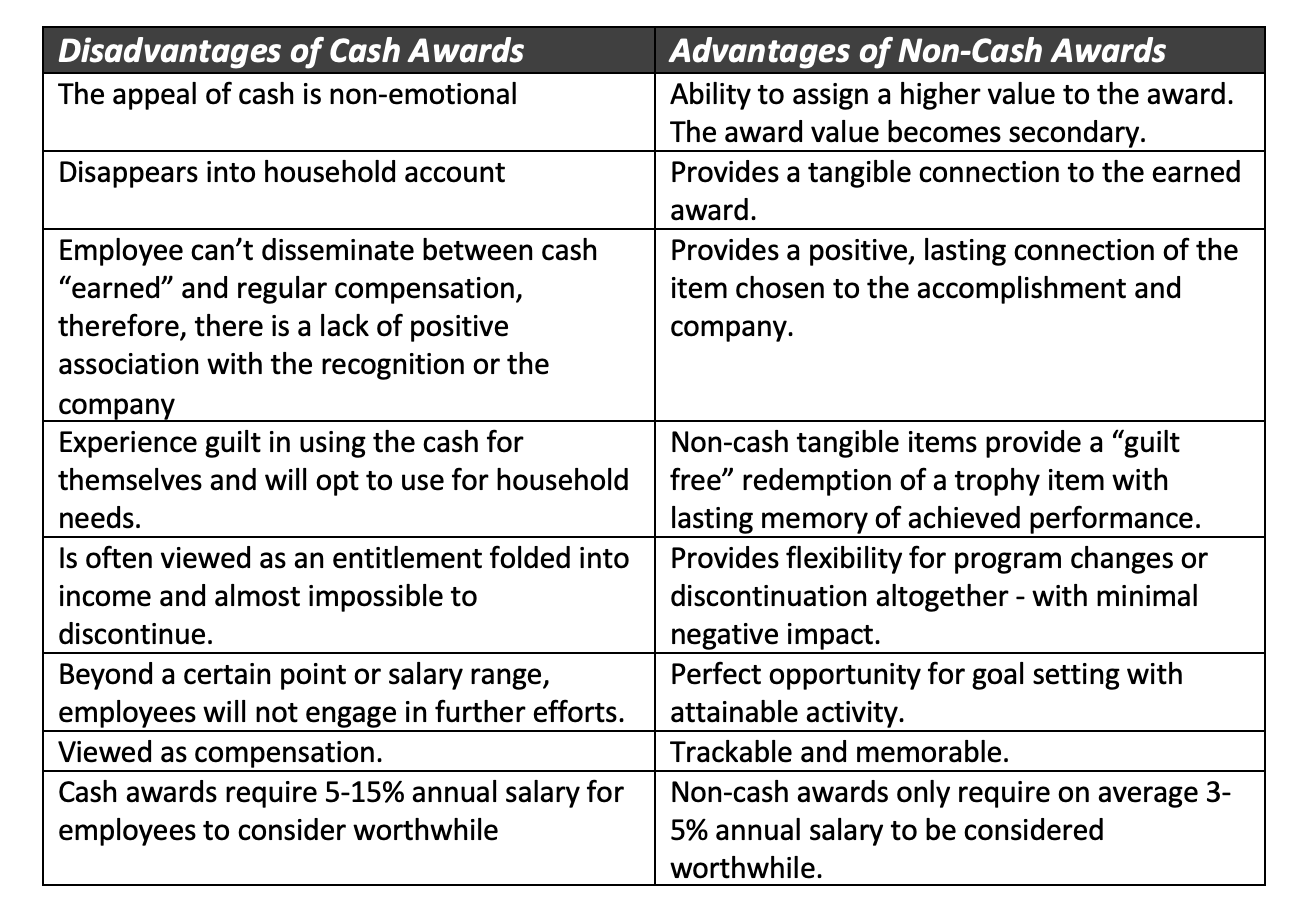Listen to this blog:

Have you ever considered using “Cash” as a motivator? Cash-based incentives possess a certain appeal. Generally, they’re easier to implement, a larger group of employees can be rewarded, and cash awards are more flexible – One Size Fits All. It’s simply easy and cash awards do not require much thought other than to establish the appropriate denomination. And although cash appears to be a quick and easy fix – it’s an ineffective motivator.
“At the end of the day, (cash) has nothing to do with trophy value, it has nothing to do with shared memory, it has nothing to do with engagement… Cash is not a motivator. It’s a compensator.” – Dave Peer, IMA
Incentive programs offering non-cash awards generate more tangible results than those offering cash. Throughout the last decade, plenty of studies have reported on the effectiveness of various award types, and “cash” is always one of the award types considered. In fact, cash is generally at the top of most employees’ “want” list. Cash however falls short as a motivational award, and that’s precisely where the divide occurs.
According to a study from The Incentive Research Foundation, 65% of employees prefer non-cash incentives.
Cash awards become perceived compensation – part of one’s salary and become expected. Once this happens, it’s nearly impossible to stop awarding in cash. Because of the connection to “salary”, when cash awards cease, employees will perceive this as a pay cut – creating a demotivator. Cash incentives satisfy monetary demands; however, cash does not motivate employees to exceed expected performance levels. Once the cash is folded into the family account, the cash award and purpose for receiving – disappears. If your goal is to motivate desired behaviors, boost employee performance or increase sales – non-cash incentives provide the largest impact.
Cash is an Ineffective Motivator
- Cash holds zero trophy value. Once it’s spent, it’s gone and so is the purpose of the award. There isn’t any lasting memory.
- It’s not socially acceptable to brag about a cash award. With a “cash” award, it becomes a matter of something “purchased” instead of something “earned”.
- Cash costs more! The perceived value is equal to the actual value.
- There isn’t any lasting connection between cash and how it was spent. The connection to the award and the behavior, are disconnected and less likely remembered or discussed.
- Employees begin to count on the cash and consider it to be part of their income or “compensation”, rather than as an award earned.
- Cash creates “guilt”. An employee will often use it for bills or other household needs.
Cash Awards Versus Non-Cash Awards – A comparison

Non-Cash Rewards
Companies continue to shift away from cash to non-cash rewards; due to the benefits they hold. In a publication; McKinsey Quarterly – Motivating People: Getting Beyond Money, it’s argued that non-cash rewards are much more effective in motivating employees as well as, adding a more significant value in building long-term employee engagement – than with the use of cash. Non-cash rewards serve as key motivators for driving performance, increased engagement, and overall employee morale.
Best-in-class companies provide meaningful awards and recognition. Non-cash awards, such as merchandise, travel, points-based recognition, and events – generate greater program results than cash awards. The motivational and financial value of non-cash awards have far more meaning and create a larger impact on the employee and their family than cash awards.
When rewarding top performers, 21% of Best-in-class companies have turned to recognition partners for non-cash reward programs. -Aberdeen Group
Non-cash awards, on average cost an organization one-third as much as cash awards, with the same results. In an example of a Sales Bonus Program, cash awards cost anywhere from 12%-15% of sales achieved, while non-cash incentives cost on average 4%-6%. That’s a significant enough difference to allow organizations the ability to award their employees more often, which serves as an additional opportunity for engagement.
Conclusion
Although cash awards might appear to solve the ‘one size fits all” of recognition – cash does not motivate employee behavior. Employees see cash as part of their salary and over time, begin to expect it. Cash awards are most often used to pay household bills or groceries. Cash does not create the “memorable connection” as with non-cash awards – creating a disconnect to the achieved performance and your organization. Studies have shown that “the use of tangible, non-cash awards are linked to increased employee commitment to your organization because non-cash awards create a memorable experience.”





0 Comments